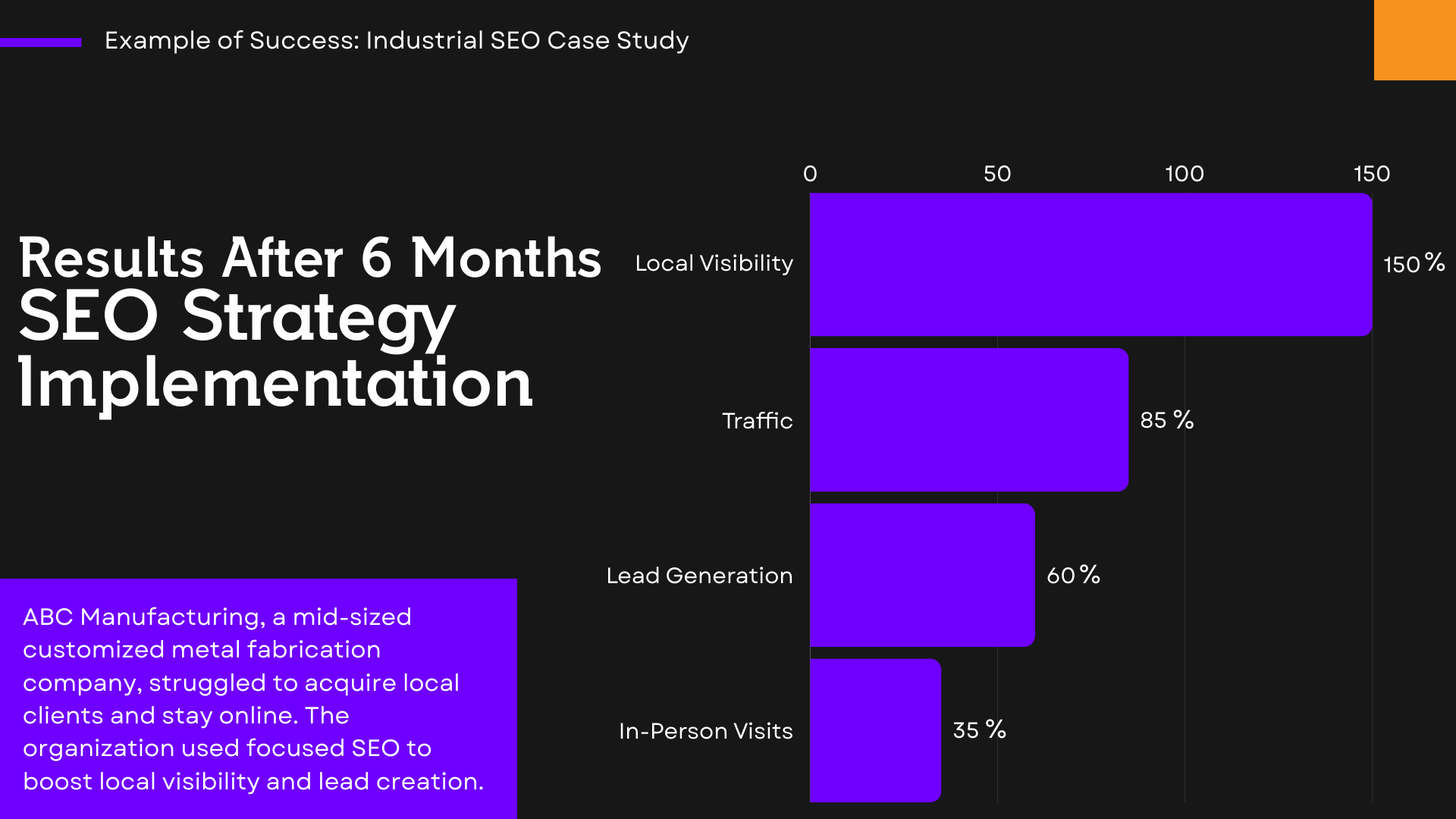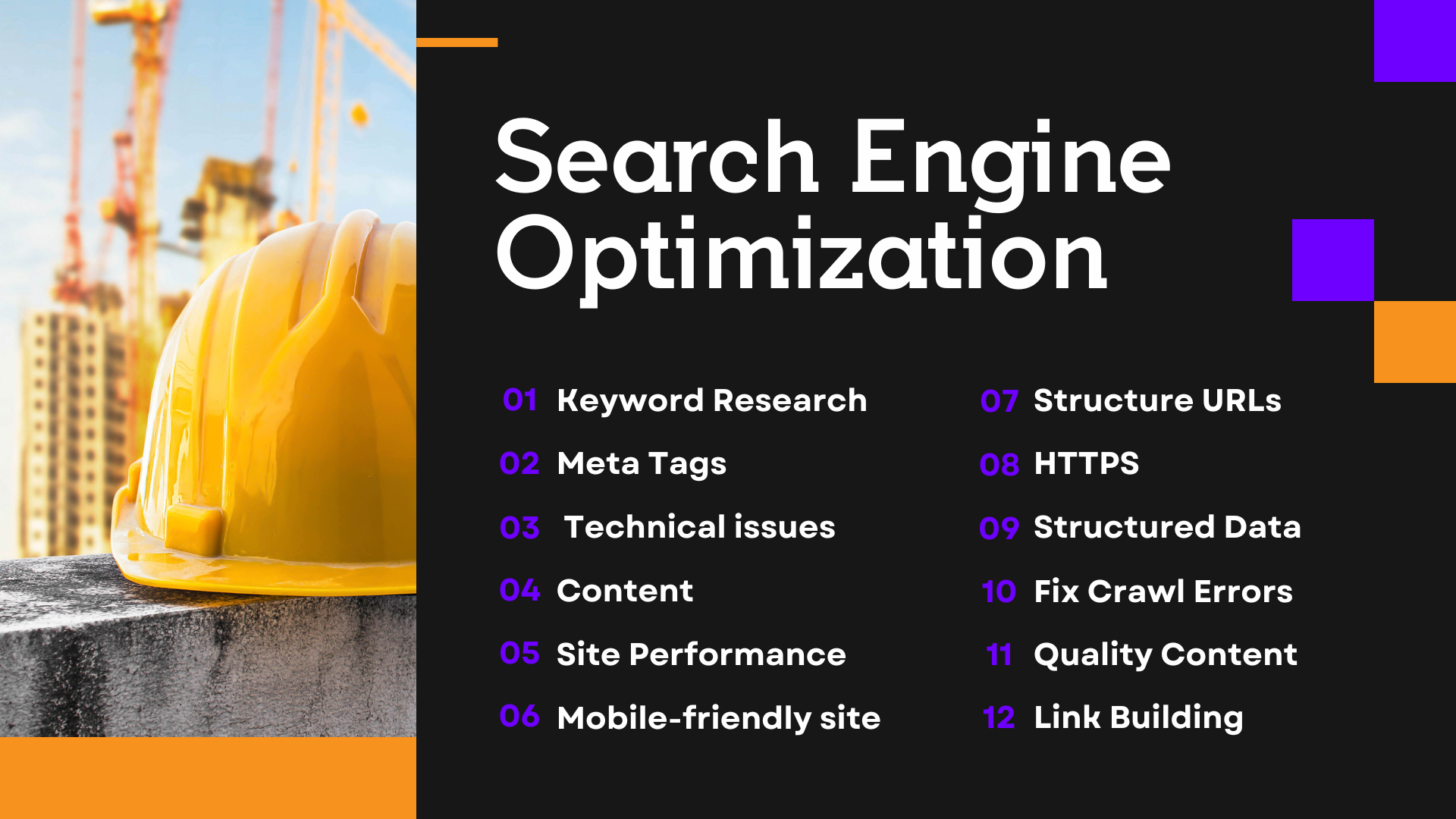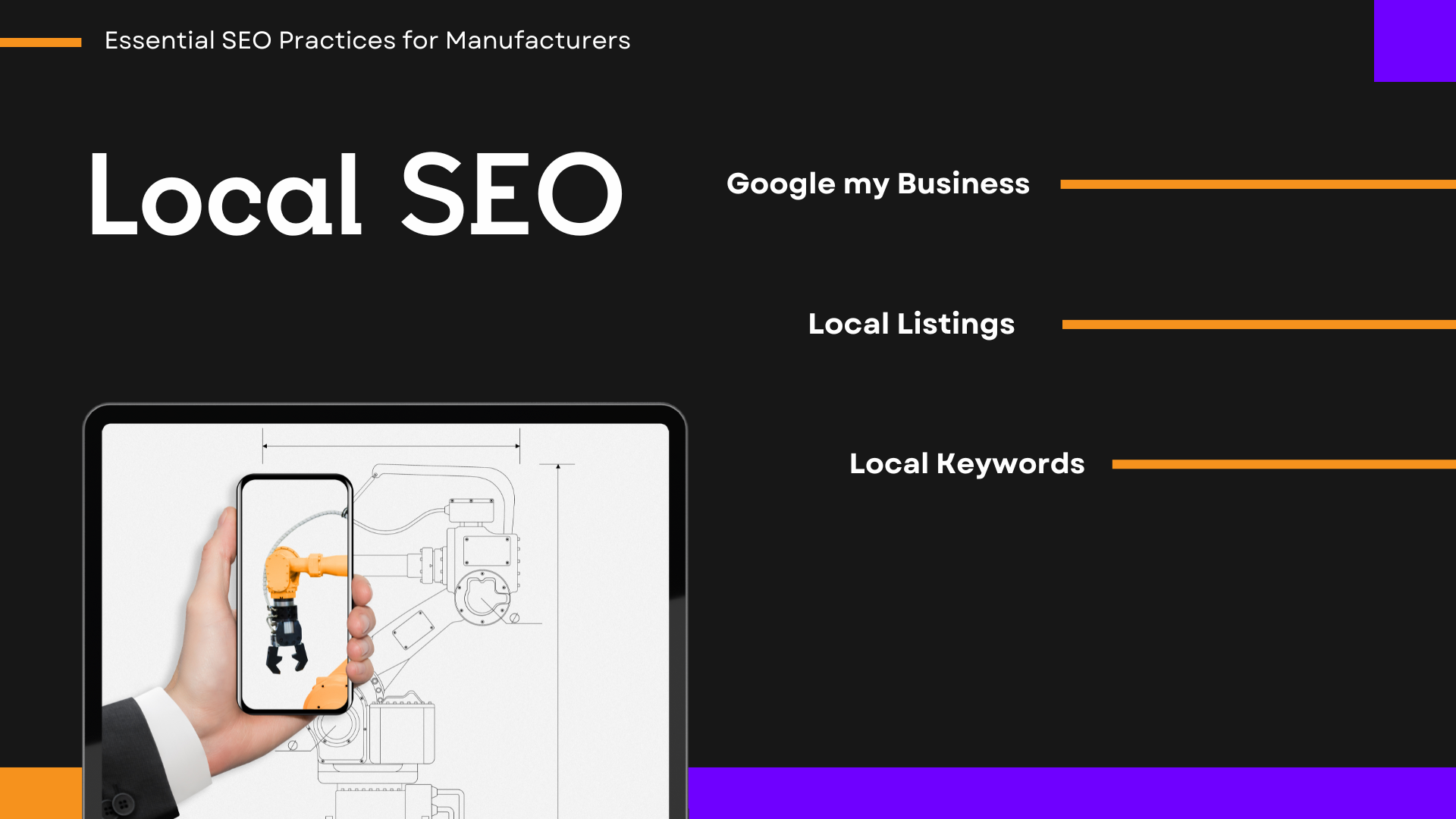Effective SEO for Industrial Companies: Best Practices and Tips
One cannot stress the value of SEO in the present digital era. The competitive character of online markets grows along with the increasing number of internet users.
SEO improves search engine visibility, helping companies stand out in congested sectors. SEO helps a company’s website rank on the top page of search results for relevant keywords, attracting more clients.
SEO for industrial is significantly more crucial. The competitive internet industry requires a strong SEO approach to stand out. Manufacturing companies have specialist markets and lengthier sales cycles than consumer-oriented businesses, so they must attract potential customers early in the decision-making process.
The Crucial Role of SEO in Boosting Manufacturing Business Visibility
SEO uses many methods to improve a website’s search engine rankings. It has three main parts:
- On-page optimizes web pages to achieve higher rankings and relevant traffic.
- Off-page SEO uses backlink building to boost a website’s authority.
- Technical guarantees a website meets search engine requirements including speed, mobile-friendliness, and crawlability.
Industrial enterprises may boost traffic, lead creation, and online exposure using SEO. Better search rankings can help your firm obtain qualified leads actively searching for your products or services.

Industry-Specific Insights: Customizing Approaches for SEO Success
Manufacturers must target specialist keywords and provide specialized content for search engine optimization. These challenges also allow one to dominate specific market niches with authoritative and relevant information.
Effective SEO for industrial companies has distinct challenges. Their highly specialized and sophisticated products and services are a major obstacle to digital marketing. Niche keywords have smaller search volumes, making keyword targeting challenging. Manufacturing information sometimes uses complicated vocabulary that may not fit potential clients’ search queries.
Manufacturing’s long sales cycles are another issue. Nurturing leads over time is more successful than SEO for instant conversion. To keep audiences interested, high-quality information must be consistently released.
Old manufacturing websites lack technical SEO optimizations like mobile-friendliness, fast loading times, and simple navigation. This impacts their search engine results and user experience. Many companies compete for digital presence in a small arena. To compete online, manufacturers need a complete SEO plan that meets these distinct obstacles.
So, if you’re considering how to improve SEO for industrial companies, we’ve got some pointers that will be useful!
Essential Keyword Research Tips for Manufacturing SEO
Keyword research finds relevant terms and phrases potential buyers use, to find your products or services. Manufacturing SEO keyword research has some distinct differences from other areas. Consider these crucial factors:
- Technical jargon: Companies utilize industry-specific phrases. Use these keywords to attract the correct audience who is familiar with and searching for them.
- Understanding search intent: Match target keywords to your audience’s language and intent. This involves knowing if people want information, products, or solutions.
- Long-tail keywords are more precise and have lower search volumes but higher intent.
- Find out what keywords your competitors rank for. Find these keywords and analyze their performance with SEMrush or Ahrefs. This can inspire your keyword approach.
- Find gaps in your competitor’s SEO strategies. Find terms they’re not targeting, yet that are related to your business. This may help you rank higher in search results.
- After choosing keywords, incorporate them into a content plan. This implies leveraging these keywords in website content, blog posts, and other marketing materials to boost search engine ranks.
- Improving manufacturing SEO requires keyword placement in titles, headers, meta descriptions, and content.
- Track keyword performance and make revisions depending on metrics. This helps you maintain and improve search rankings.
- Stay current on manufacturing industry trends and alter your keyword strategy. This keeps you ahead of the competition and attracts relevant traffic.
Focusing on these details might help you create a better keyword strategy that increases traffic and online presence.
Top Tools and Techniques You Need For Keyword Research
These instruments will assist in the search for target keywords since, without appropriate optimization, the entire process is yet labor-intensive and time-consuming. Several tools to help with keyword research and optimize SEO efforts:
- Google Keyword Planner;
- Twinword;
- SEMrush;
- Ahrefs;
- Similarweb.
Certain tools let you design custom filters to find the best keywords for your industry. This helps you target the most important terms. Explore search volume and keyword competitiveness to find the most likely terms for your industrial SEO strategy.
On-Page SEO Strategies: Elevate Your Company Search Engine Performance
Each web page needs on-page SEO to attract more correct visitors. High-quality, informative content meets user wants and tells search engines your site has useful information, enhancing your rank. On-page SEO improves site navigation, loading times, and mobile-friendliness. This is crucial for manufacturing companies because it helps potential customers locate accurate and reliable information quickly, increasing engagement and conversion rates.

On-page SEO tips for industrial businesses:
- Keyword/Topic Research
- Identify Key Topics: Discuss manufacturing topics including “custom manufacturing solutions,” “precision engineering,” and “industrial automation.”
- Target Keywords: Use Google Keyword Planner, SEMrush, and Ahrefs to uncover niche-specific long-tail keywords.
- Assess Search Intent: Make sure the keywords reflect the user’s interest, whether instructional (guides or how-tos) or transactional (product pages or services).
-
Optimize Meta Tags
-
Title Tags: Keep primary keywords under 60 characters to maximize SERP visibility.
- Description: Write interesting 150-160-character meta descriptions with secondary keywords. They should summarize page content and appeal to searchers.
- Content Structure and Optimization Headers: Divide text into digestible chunks with keywords in headers. Use one H1 tag per page, preferably with the keyword.
- Material Quality: Create excellent content that answers your audience’s questions. Avoid keyword cramming and use terms naturally.
- Use internal links to direct readers to relevant pages on your site to improve navigation and link equity.
-
- Improve Technical Issues for Better Industrial SEO
- URL Structure: Use keywords in clean, informative URLs. Stay away from convoluted URLs.
- Create meaningful alt text for photos, including keywords, to improve image search results and accessibility.
- Site Speed: Use Google PageSpeed Insights to find and fix site speed issues. Use browser caching and picture compression.
- Update and Check Content Regularly for More Efficient Manufacturing SEO
- Updates: Review and update content often to stay current.
- Audit SEO regularly to spot faults and track performance indicators. This can be done with Screaming Frog and Google Search Console.
Although these appear little, search engine optimization depends much on these actions. Using them can also help your business’ website to be a lot more comfortable, which will surely have positive effects on your manufacturing company.
Enhancing Technical Search Engine Optimization for Manufacturers
Technical SEO optimizes the manufacturing company website’s infrastructure, so search engines can crawl and index the content.
Effective website performance increases user experience, engagement, and conversion rates. A clean, streamlined site helps search engines grasp your content’s relevance and context, improving ranks. Technical SEO helps manufacturing companies attract targeted traffic and better-qualified prospects by making their quality, industry-specific content easy to access.
Technical best SEO practices for industrial manufacturers:
- Improve Site Performance
-
Image Compression: TinyPNG and ImageOptim minimize image file sizes without compromising quality, speeding up load times.
- Browser Caching: Store copies of your site’s pages in browsers to reduce server load and improve repeat visitor load times.
- UglifyJS or CSSNano can minify CSS, JavaScript, and HTML to reduce code, white space, and comments.
-
Content Delivery Network: Distribute your site’s content across multiple regions with a CDN to speed up global load times.
-
- Make it Mobile-Friendly
-
Responsive Design: Make the manufacturing website responsive across all mobile devices and screen sizes for a consistent user experience.
- Mobile Usability Test: Check your site’s mobile performance with Google’s Mobile-Friendly Test and fix any errors.
- Optimize Touch Elements: Avoid inadvertent clicks by properly sizing and spacing buttons and other interactive elements.
-
-
Structure URLs to Optimize SEO for industrial
-
Canonical URLs: Show search engines the preferred version of a webpage to avoid duplicate content concerns.
-
- Increase Site Security Using HTTPS
- Encrypt all browser-to-site data with an SSL certificate.
- Use HTTPS on all site pages and resources to improve security and search rankings.
- Use Structured Data
- Use schema.org markup to assist search engines in comprehending your content and generate rich snippets to boost search rankings.
- Use breadcrumb schema to improve navigation and assist search engines grasp your site’s structure.
- Check and Fix Crawl Errors
- Fix issues and monitor site performance using Google Search Console.
- An updated XML sitemap gives search engines a roadmap of your site’s content.
- In your robots.txt file, inform search engines which pages or areas of your site to crawl or avoid.
These steps can help improve manufacturing SEO, making the website quick, secure, and user-friendly. This solid technical foundation will boost search rankings and user engagement, resulting in more qualified leads and business growth.
Building Quality Backlinks for the Effectiveness of the Company’s Website
Inbound links — are links from other websites to yours. These links tell search engines your content and website are reliable and authoritative. Backlinks boost web visibility and targeted traffic for manufacturing companies. Backlinks from industry experts create credibility and client relationships, increase domain authority and search engine rankings.

Industrial SEO strategies for higher search rankings through inbound optimization:
-
Produce Quality Content
- Create valuable, high-quality material for your audience.
- Use industry-specific keywords and offer unique insights
-
Link Building Methods
- Post on industry blogs with links to your site.
- Exchange links with other companies.
- Promote your material on social media and industry forums to get natural backlinks.
- Online Directories and Listings
-
Register your company with industry groups and business directories online. These sites have high domain authority and can provide important backlinks.
-
- Analyze Your Backlinks
- Monitor your backlink profile with Ahrefs or Moz to uncover low-quality or spammy links that could damage your site’s reputation. Use Google’s Disavow Tool to remove these links.
Manufacturing companies can increase their backlink profile and online presence by following these techniques and creating high-quality content.
Maximizing Local Reach: Essential SEO Practices for Manufacturers
Industrial enterprises need local SEO to reach regional customers. Local search engine optimization optimizes your website for local customers, unlike standard SEO. Manufacturers that serve a specific region or rely heavily on local customers should pay attention.

Benefits of local SEO for industrial companies:
- Local search results and maps help local customers find your business.
- Local search optimization boosts website traffic.
- Collecting and reacting to consumer feedback boosts your company’s local reputation.
- Better Customer Engagement: Local SEO tactics like GMB enable direct customer interaction.
- Local presence increases traffic, which increases sales and community collaborations.
Local SEO includes building and optimizing a Google Business profile, maintaining business information across online platforms, and reacting to feedback from clients. Local keywords and content communicate relevance to search engines. Local SEO may improve local search results, website traffic, and customer visits. Increased local awareness means higher revenue and community connections for industrial businesses.
The Path Forward: SEO Strategies for Industrial Growth
SEO for industrial companies needs a strong strategy to boost online visibility, acquire quality leads, and compete in the digital market. At Webugol, we help industrial organizations raise their search engine ranks and exposure by focusing on keyword research, on-page and technical SEO, high-quality backlinks, and localized content. Industry-specific challenges can be tackled with authoritative content to dominate niche markets. Staying up to date on SEO best practices with Webugol’s guidance will help your organization thrive as search algorithms evolve.
Stop waiting—implement these methods with Webugol today to enhance your industrial company’s web presence and lead generation. Remember to evaluate and adjust your SEO efforts for optimal results. With Webugol’s expertise and consistent, high-quality content, you can build a successful digital presence for your industrial business.


